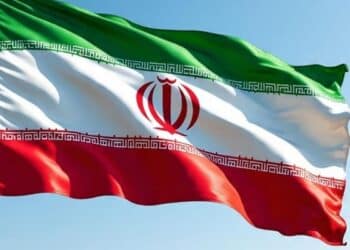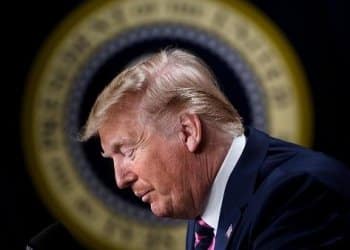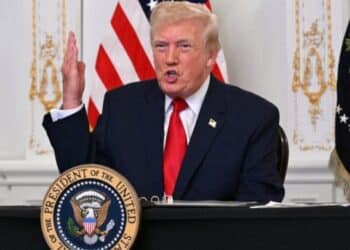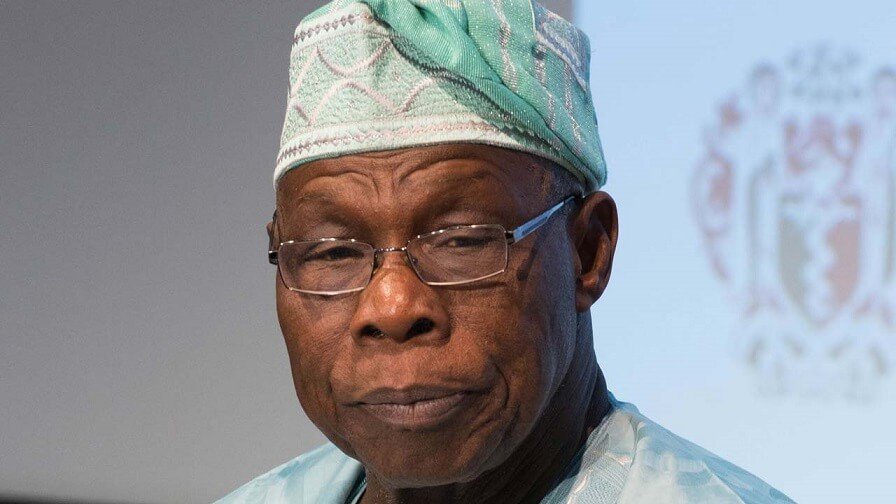The Hong Kong government has postponed September’s parliamentary elections by a year, saying it is necessary amid a rise in coronavirus infections.
Hong Kong is currently experiencing a spike in Covid-19 infections, and reported 121 new cases on Friday.
However, the opposition has accused the government of using the pandemic as a pretext to stop people from voting.
On Thursday, the government banned 12 pro-democracy candidates from running in the elections.
Opposition activists had hoped to obtain a majority in the Legislative Council (LegCo) in September’s poll, capitalising on anger at Beijing’s imposition of a controversial national security law in Hong Kong, and fears that the territory’s freedoms are being eroded.
Hong Kong, a former British colony, was handed back to China in 1997 under an agreement meant to guarantee a high degree of autonomy for 50 years.
Pro-democracy candidates had made unprecedented gains in last year’s district council elections, winning 17 out of 18 councils.
On Friday, Chief Executive Carrie Lam said she would invoke emergency powers to postpone the elections, calling it the “most difficult decision I’ve made over the past seven months”.
“This postponement is entirely made based on public safety reasons, there were no political considerations,” she said.
Separately on Friday, Hong Kong police put six overseas activists on a wanted list, on suspicion of violating the new national security law, media reports said.
Among them are high-profile activist Nathan Law, who has fled to the UK, and Simon Cheng, a former employee of the UK’s Hong Kong consulate who alleges he was tortured in China and was recently granted political asylum in Britain.
COVID-19 Pandemic In Hong Kong
Hong Kong has had more than 100 daily new cases, for 10 days in a row.
The overall numbers are still lower than those of many other places – but the spike comes after Hong Kong appeared to have contained the outbreak, with weeks of few or no local infections.
Now, it’s experiencing what’s been described as a “third wave” of infections, and Ms Lam says she fears Hong Kong’s hospitals will be overwhelmed by new cases.
Health experts have told the BBC that, with the reintroduction of social distancing measures, the rate of infection appears to have slowed, and they hope Hong Kong will be back to close to zero local infections within four to six weeks.
The city has introduced tough new measures to combat the virus, banning gatherings of more than two people.
Argument for postponing elections
The territory has had more than 3,200 confirmed infections, and 27 deaths, from the virus.
Ms Lam said Hong Kong’s pandemic was in “its worst situation since January” and “as community spread continues, the risk of a large-scale outbreak will increase”.
She said that with 4.4m registered voters in Hong Kong, the elections would involve “a large-scale gathering and an immense infection risk”, while social distancing measures would prevent candidates from canvassing.
She also said that proceeding with elections in September would pose a particular risk to elderly voters, and that Hong Kong had many registered voters in mainland China, and overseas, who would be unable to take part in the elections while border quarantine measures were in place.
The Chinese government said it supported the decision, which was made “in the interests of the public”.
Argument against delaying the polls
Opposition politicians say that, under local election laws, the polls can only be postponed by 14 days, and that a longer delay would “trigger a constitutional crisis in the city”.
Lawmaker Tanya Chan said she suspected pro-government politicians were more concerned about “their own election prospects” rather than “the severity of the pandemic”.
Some experts have suggested that measures could be put into place to make elections safer, such as reducing waiting times at polling stations – and that a delay of a whole year is not necessary.
Mr Cheng told the BBC that he would not stop speaking out about issues in Hong Kong. “The totalitarian regime now criminalises me, and I would take that not as a shame but an honour,” he said.









